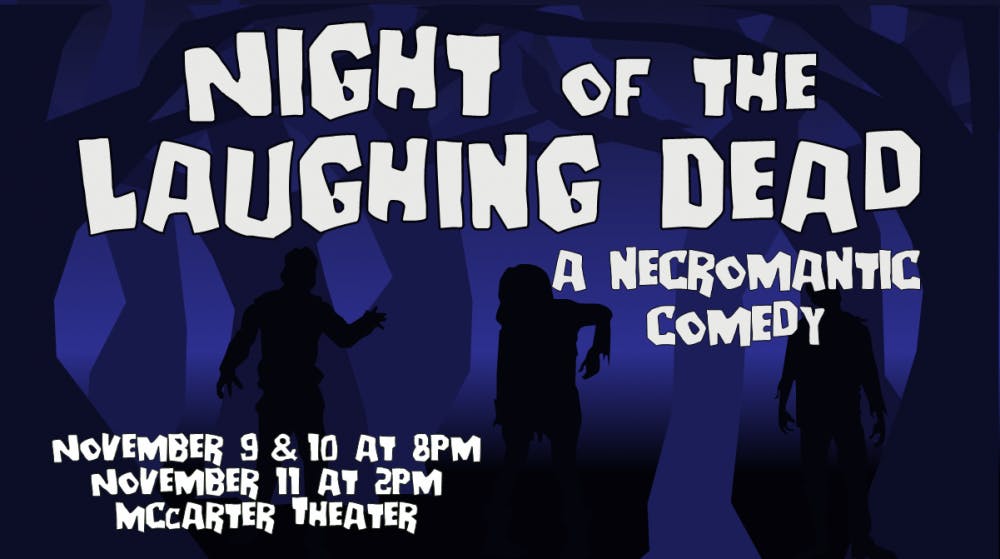This past weekend, Triangle Club’s fall show, “Night of the Laughing Dead,” transformed McCarter Theatre into the Doancomb Inn: a haunted hotel to satisfy the belated need for Halloween “spookitude” you didn’t know you had. Among the delightful clichés of cobwebs and Michael Jackson, the show does not shy away from the truly frightful. The thesis: “Journalism is Dead!” But as the world of journalism is overtaken by the undead, the real question becomes: are ghosts real?
The skits cover every inch of musical comedy ground one could ask for: plot-moving catchy tunes like “journalism is black and white and unread!”; ridiculous laugh-out-loud bits like “Children of the Corn” and “Shark Ghosts”; witty puns scattered throughout songs like “Boogie Woogie Man” and “Soul Food”; well-choreographed and tradition-bending moments like “Jack the Rip-Offs”; and even a sweet touch of Romeo and Juliet romance that defies the barriers of life and death.
The story is one of a slightly pathetic team of journalists trying to seek out the truth despite ridiculous haunted hotel assignments from their cynical, sales-oriented boss (he quite literally cannot pronounce “fact check”). We are soon disoriented by the different perspectives and claims to truth converging onstage — the narrator, Doancomb Inn’s ghosts, and the skeptical reporters trying to find a “real” story within the hotel’s walls. The audience doesn’t know whom to believe until everything comes together to an even greater degree of absurdity.
The fall show differs from spring shows in terms of its cohesiveness: The spring show is a delightful amalgamation of unrelated skits, whereas the fall show follows a complete storyline from start to finish. At times, the skits in “Night of the Laughing Dead” do veer sharply from the plot, but those scenes are hilarious enough, and the story returns consistently enough, that I didn’t feel bothered. In a long comedy performance, the audience needs things coming out of left field to fend off boredom.
Most unexpectedly, the show manages to be consistently (dare I say, complexly?) political without impressing any identifiable message on the audience. The show feels refreshing even as it parades around the stage the most obvious political tropes of our current moment. For example, in “Monsters Under the Bed,” the characters “Low Voter Turnout,” “Money in Politics,” “Toxic Masculinity,” and “Russian Collusion” cheerfully sing the praises of their own evilness to an exaggeratedly innocent little girl whose parents dismiss her fears.
The show declares its takeaway to be to seek out the truth, but more importantly, that “ghosts are real!” The incongruence is hilarious, yet it feels bafflingly deep at the same time. One skit brings up the question of whether believing in the right thing is still noble when that belief comes from blindly following someone else’s opinion. When serious journalist Jeanette discovers the truth that ghosts are real, she finds herself in a moral dilemma of deploying the help of the people who sing, “We believe in you … we don’t need any evidence,” and whose theories manage to out-conspiracy the radio show host and conspiracy theorist Alex Jones.
But maybe the show is laughing at the audience for seeking out a political message. Just as I was wondering, “is this politically charged?” a character onstage dramatically asked that very question in a scene that whittles down political dialogue to its most simplistic elements.
Perhaps the show responds to our need to laugh at the absurdity of the world by layering on even more absurdity. Ultimately, though, the most important thing for a Triangle show is that it make you laugh and forget about the world for a couple hours (while pushing the limits of propriety less than its spring show). In this task, I say it was a job well done, and declare the takeaway to be: “Don’t believe what the Corn God tells you!”








